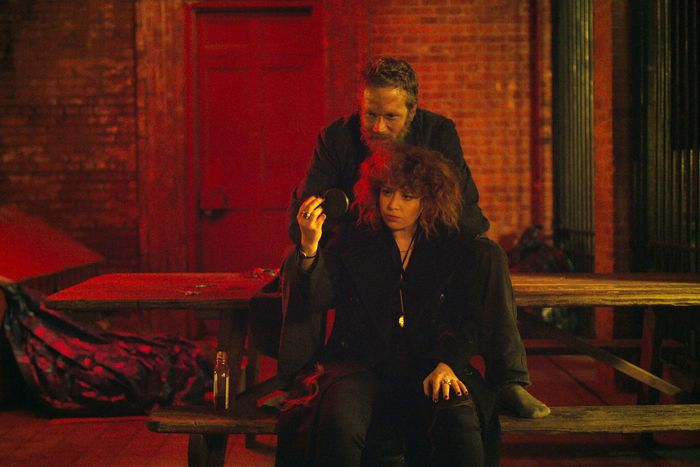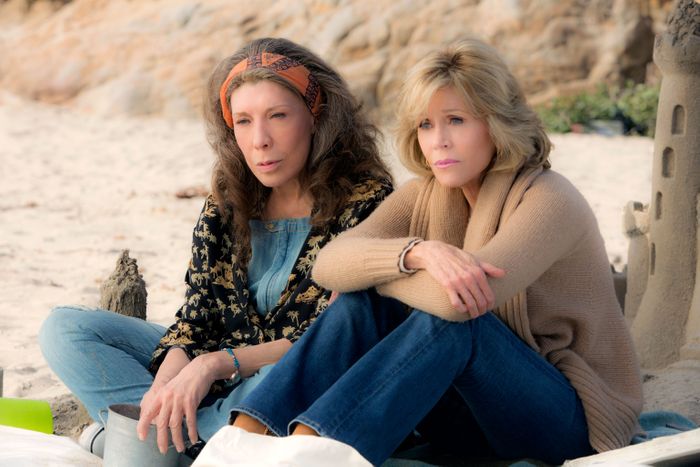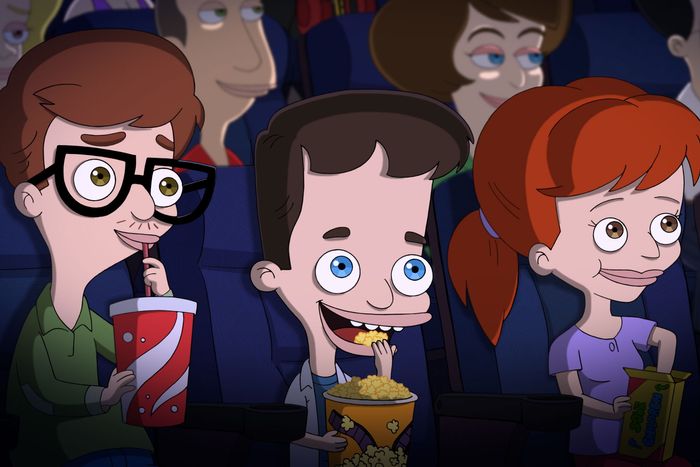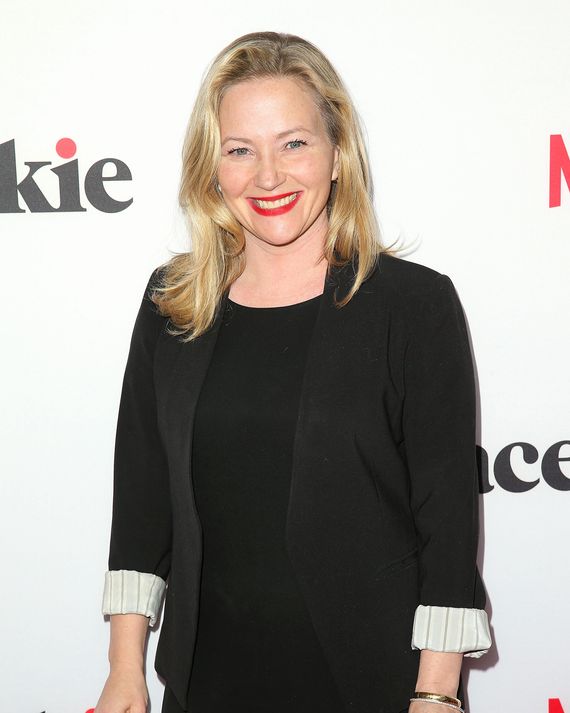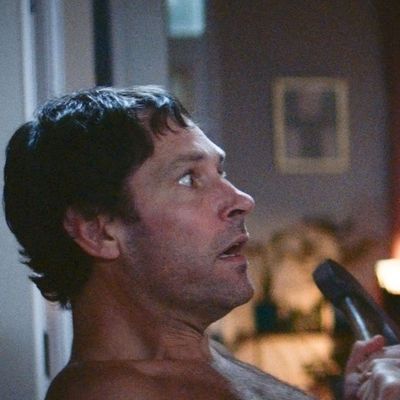
For decades, few things have been more vital to a TV network’s bottom line than its ability to craft a strong comedy brand. ABC dominated the late ’70s ratings in large measure because of Tuesday night sitcoms like Three’s Company and Laverne & Shirley. Similarly, NBC’s Nielsen hegemony through big chunks of the ’80s and ’90s and ’00s can be traced back to the appeal of its “Must-See TV” formula of smart, sophisticated half-hours, ranging from Cheers and Seinfeld to The Office. These days, relative newcomer Netflix has also been trying to forge its own comedy connection with audiences — but not in the same way its linear competitors did. The streaming giant doesn’t want to be known for any one particular kind of comedy. It wants to be the home of all the comedy brands.
This refusal to pick a particular comedy lane isn’t surprising: The streamer’s well-stated goal is not to simply become a better version of HBO or NBC, but to replace traditional TV as the dominant form of video entertainment. So just as Netflix’s film slate varies widely from Oscar contenders like The Irishman to the tween-friendly Tall Girl, its current and upcoming half-hour comedy offerings strive to be equally eclectic. “We want to have everyone’s favorite show,” says Jane Wiseman, Netflix VP of original comedy series.
That maximalist goal means the same platform that made the critically acclaimed Master of None and Unbreakable Kimmy Schmidt is equally invested in reaching viewers who might have watched ABC’s TGIF comedies (had they been alive in the ’90s) via shows such as Family Reunion and the upcoming Wanda Sykes/Mike Epps–led The Upshaws. If adult-oriented animated comedies that would be right at home on Fox’s Sunday lineup (Big Mouth, F Is for Family) aren’t your jam, the Netflix comedy machine will soon offer The Crew, a Kevin James–led family sitcom that sounds like it would be right at home on CBS. (The Eye’s older audience is also likely to appreciate actors over 70 headlining the long-running Grace & Frankie and the Chuck Lorre–created The Kominsky Method, whose second season just premiered). There’s even a show for Must-See TV lovers who binge The Office on Netflix, but are already mourning its pending departure from the service: Steve Carell has signed on to star in Space Force, which is being produced by American Office creator Greg Daniels.
While Netflix strives to tickle all the funny bones, its 2019 slate has been marked by several new shows that blur the lines between comedy, drama, and even sci-fi. Russian Doll, Dead to Me, and this month’s Paul Rudd–led Living With Yourself very much feel like projects that not long ago would’ve been made into movies instead of episodic comedies. Indeed, Tim Greenberg, the creator of Living With Yourself, says he thinks Netflix has played a key role in expanding the definition of what makes a TV comedy. Ideas like the one at the heart of his show — Rudd plays a man who ends up co-existing with his own clone — have been a staple in cinema for at least a few decades, he says. “I’m sure it goes back even further, but all of Charlie Kaufman’s movies, Groundhog Day, The Truman Show, those kinds of movies are very similar to this,” Greenberg says. “Those are all comedies that really have a very central, interesting and strong point of view, call it existential or maybe metaphysical.”
Although Greenberg spent years working as an executive producer on The Daily Show, he had always figured a move into fiction would mean writing feature screenplays. “For years, I thought I was going to be doing movies. I couldn’t see a place for myself in TV,” he says. But the rise of platforms such as Netflix, with their big ambitions and even bigger budgets, means television “has expanded tremendously what it’s willing to do. I don’t think [this] kind of genre is new, but I think TV’s ability to deliver those kinds of stories has hugely changed.”
Living With Yourself had originally been set up at cable’s IFC, which actually paid Greenberg to write the entire first season. “We were going to film it, and then their money just went away,” he says. “They got their budgets cut. Netflix has budgets, too — believe me, I know that very well now — but I just think that they have that kind of energy from the ground up that feels a little more daring.” And despite Netflix’s reputation of late as a programming colossus, Greenberg says working there didn’t feel like toiling at a content factory. “It’s not a giant,” he says. “At least the executives I dealt with, it wasn’t that many people. It feels like the whole department is fairly small, and that if you’re talking to one person, you’re kind of talking to everybody.”
That’s exactly how Wiseman says she set up her comedy production and development engine. “I’ve structured my larger comedy team into three groups with their own strategies: adult live-action, adult animation, and family sitcoms and kids,” she says. As at other Netflix divisions, the heads each unit has the power to greenlight projects without getting Wiseman to sign off. But Wiseman, whose past life a network development exec saw her working on shows such as Arrested Development, Community, and Parks and Recreation, still sets the overall direction for Netflix’s domestic comedy output. Vulture recently caught up with Wiseman to talk about how Living With Yourself made its way to the service, as well as a broad range of other topics, including whether she still wants to make shows that run for more than a few seasons and why she’s not giving up on multi-camera comedies even after canceling One Day at a Time.
Maybe it’s not a big deal in an age where Meryl Streep and Julia Roberts are doing TV, but getting Rudd to do a TV comedy really does feel notable. Do Netflix’s huge budgets and big reach make it easier to go after someone like him for a show like Living With Yourself?
We always reach for the stars, literally. The idea that you can entice someone like Paul Rudd to do a television series is a testament to Netflix, I think, because we do attract talent. We have a platform that speaks to people on a global scale. And I think that’s what excited Paul about it as well.
Think about it: Steve Carell wanted to come back to TV and he was specifically looking for something on Netflix. The fact that we have Space Force in production right now, it’s the same thing. It’s so incredibly exciting, the level of talent that we can attract to us.
But is it getting harder to attract that talent? There are so many more platforms now willing to offer the same creative freedom and the financial resources.
There’s lots of competition, and we welcome it. But we’ve been doing this now for six years, so we really got ahead of it early. We’ve been taking these huge swings, whether it’s Russian Doll or Stranger Things or Unbreakable Kimmy Schmidt. We’re giving these really talented people a place to tell their stories and have a great time doing it.
Having a lot of resources has to help a lot, right? You have the advantage of just charging ahead most of the time, making a ton of shows, and if something doesn’t work, well, on to the next one. Is that how you think of it?
I’ve been working in comedy for 18 years. And for the first 12 that I worked in network comedy, I worked and developed five series that went a second season. At Netflix, in half that time, we’ve launched over 20 series that have gone onto a second, third, and sometimes fifth, sixth, and seventh [season]. So I don’t actually think about it in terms of, “Is this show going to go one season or not?”
When you were in the network world deciding which projects to take up to your boss, you obviously did have more of a fear of failure, right?
Are you kidding? [Laughs.] There is such a high failure rate in network TV. We did our best. The idea of making ten pilots a year and two series getting picked up, that’s a different model than going straight to series. The time I spent in network before Netflix, I definitely had some real high points with Parks and Rec and Community and The Bernie Mac Show, and of course, Arrested Development, which I worked on both at Fox and at Netflix. But it’s just a different world now.
My point is, when you were in network TV, you had to be a politician in terms of thinking about what’s going to work and fit into the brand. Now you don’t, at least not in the same way.
In my old jobs, it was about the demographics — the 18-to-49 [year-olds] — and trying to find this quote-unquote “broad comedy” that would appeal to four quadrants and with advertisers. We don’t have any of that. We don’t have advertisers. I love to say we make shows for ages six to 106. So it is freeing. The first show that I did when I got to Netflix was Grace and Frankie. That felt unheard-of at the time, but it was an audience that people weren’t capturing. I’m so thrilled that we took a shot on that one, something that I don’t think we would have done in my old job.
Is it safe to say that while Netflix doesn’t have one specific comedy brand, it does have several brands?
Yes, yes.
What are those brands right now?
One, which really broke out this past year, is our elevated comedies, which we started five years ago with Kimmy Schmidt and Master of None.
Tell me what you mean by “elevated.”
They are comedies with big ideas, often high-concept stories with universal truths and of course humor. There might be some drama or sadness as well. These stories are unafraid to tackle big life questions through a comedic lens. [In 2019], those really resonated for us. That’s a great brand that we’re going to keep doing.
Tim Greenberg said that Living With Yourself has its roots in movies such as The Truman Show and Groundhog Day. Do you think of these elevated comedies as bringing a feature film feel to a half-hour series format?
It depends on the creative vision for the show. You certainly have those themes of existentialism in Living With Yourself or in Russian Doll, but those connections are there because it’s rooted in the story. We want the creative to drive the tone and length.
Is it safe to call NBC’s The Good Place an elevated comedy too?
It is. And I’m a big fan of it, by the way! The show is high concept and tackles real-life questions.
I know you won’t talk specifics, but has that show worked well on Netflix and encouraged you to do more elevated comedies?
It’s a Netflix original in many countries around the world and we air the show day after the U.S. broadcast. I don’t think it was really an indicator that this type of content works because we had seen we could have success with shows like Unbreakable Kimmy Schmidt and Master of None back in 2015, before The Good Place was on linear TV or on Netflix.
You’ve carved out two more groups within your division, adult animation and family sitcoms and kids. Tell me more about those.
The tried-and-true sitcom is something that we’re really doubling down on. Mr. Iglesias, we just renewed. Family Reunion is a great show that is going into its second season. We have a show with Mike Epps and Wanda Sykes coming out called The Upshaws. We have a show with Kevin James called The Crew, set in the NASCAR world. We have a multi-cam with Dennis Quaid, Merry Happy Whatever, which will be Christmas time. There’s also the live-action kids [comedy brand], where we just launched Team Kaylie. And then, of course, adult animation with Big Mouth and Disenchantment and F Is for Family and BoJack.
We just want to be the No. 1 comedy destination. We want to have everyone’s favorite show. We know that people have lots of different tastes and we’re aiming to really fulfill those needs. We have shows that’ll make you laugh while you’re crying, and we have shows that’ll make you laugh from physical comedy. All of our shows have elements of humor. It’s just different types of humor.
The more conventional comedies don’t get the buzz that a Living With Yourself or Russian Doll might, though. Have you considered doing weekly episodic releases for the sitcom-like shows? You could encourage families to get together to watch new episodes from several shows once a week, the way they did in the TGIF era. Make it a destination.
We do really want to leave it up to the consumer to watch as he or she sees fit. We’ve definitely experimented with shorter orders released in batches.
Like The Ranch?
Like The Ranch. And you’ll see a little bit more of that in the future. But as far as weekly, I don’t think that’s our model.
Going back to those “elevated” comedies, what else do you have on deck?
I’m really excited about Gentefied, which is coming out next year. It’s about a group of people living in Boyle Heights [and] it shows a different Latinx point of view. It feels like it can break out. We have Space Force, which is ordinary people doing extraordinary things, or maybe it’s extraordinary people doing ordinary things. It’s a workplace comedy and it’s a character piece, but it does have a big hook in the middle of it. And #BlackExcellence is a big family show from Kenya Barris — Kenya’s actually playing the patriarch of the family, Rashida Jones is playing the mom, and there’s six beautiful, wonderful, hilarious kids.
Linear networks also do these sorts of comedies, but they often draw smaller audiences — shows like The Good Place or even HBO’s Veep.
People have the idea that an elevated comedy could feel a little bit more niche, [but] that’s not necessarily what we’re doing. We do have those shows that appeal to smaller audiences, but shows like Dead to Me, Russian Doll, hopefully Living With Yourself really reach broad, big audiences around the world.
Some of the shows you’ve mentioned star comics who’ve done stand-up specials for Netflix in the past, or even movies. Will there be more examples of talent doing multiple types of projects?
That’s one of the beauties of Netflix: Our platform is open to cross-pollination between features, stand-up, sketch, docs. Aziz Ansari was on our service a long time ago with his stand-up specials, and we knew how special he was [before] Master of None. Bill Burr, who is one of our great stand-ups, we knew that people would love to see his story in F Is for Family.
Even though Netflix is known as a place that offers lots of creative freedom, lately you’re also becoming the place where shows, even good ones, can end relatively soon, at least compared to the old network TV days of shows going for 100 episodes or longer. Are shorter runs just the new reality of streaming, or do you think there’s still a place to do shows that can run for seven years?
We try to let the creative dictate the length. It doesn’t always happen. It just depends on the show, frankly. BoJack will have 80-plus episodes. Big Mouth we just renewed for six seasons. Dear White People is four years of college, [so] it’s having its fourth and final season.
But some of the longer-running shows debuted years ago. Would you still greenlight a show today for Netflix that would run 80-plus episodes?
We would! For sure.
At linear networks, development execs will sometimes telegraph to agents and showrunners what kinds of shows they want on their air. What’s your role as the head of comedy in guiding the creative community? How do you shape the kinds of comedies Netflix makes?
I don’t just sit back and say, “Bring me a show with Paul Rudd in it.” Or “Let’s come up with an idea for Steve Carell.” [Laughs.] No, we have a strategy. It’s something that has evolved tremendously over the last six years, listening to what our viewers want and what they’re watching. Our biggest, most powerful tool is Netflix itself — the product. We really get a sense of what people are watching. Right now, we feel like there’s a dearth of sitcoms that are really resonating.
I know data is key at Netflix, but how do you figure out what it’s saying? You said there’s a need for more old-school sitcoms, and yet, One Day at a Time didn’t seem to click and you canceled it after three seasons.
It’s a little art versus science. There are many shows that were green lights based on gut. And there are also shows that, for example, people love The Office and they love workplace comedies when they’re done well, so [we say], “Let’s try and find one. Let’s have Steve Carell and Greg Daniels make the next great office comedy [with Space Force].” It’s a little bit of both, to be blunt. With One Day at a Time, we made three incredible seasons of that show. Yes, the cost outweighed the viewing, but we kept it on for three seasons because we loved it. It was a dream to work with Norman Lear, and I would work with him again in a second. So there are learnings for sure that you take away from [the data], but it doesn’t keep you from taking more chances. That’s the important thing.
This interview has been edited and condensed.


